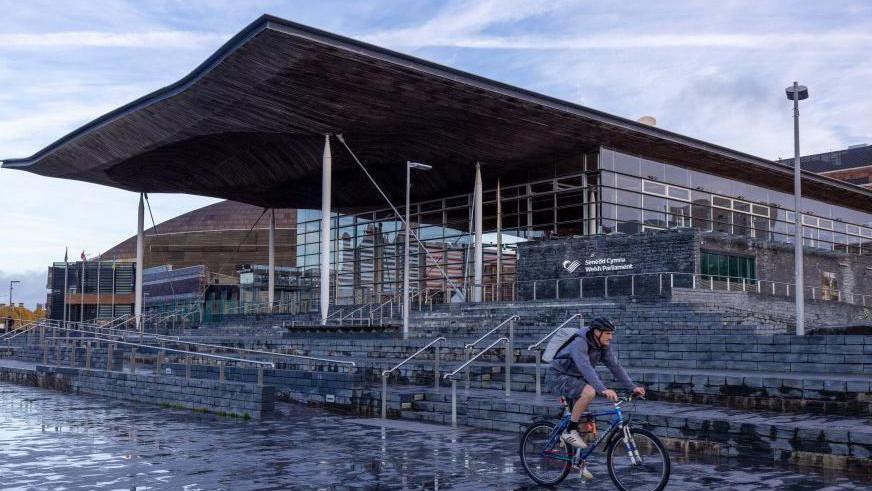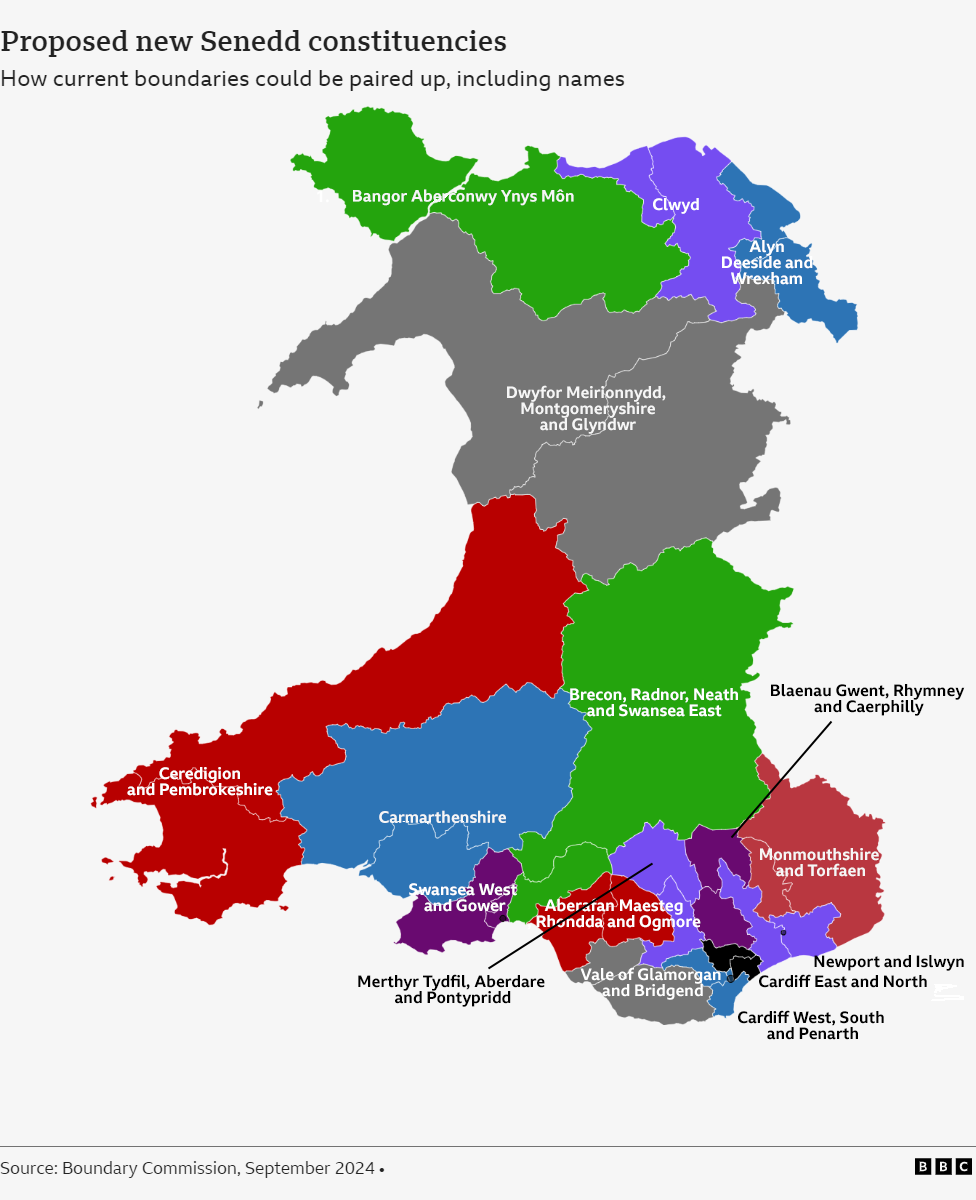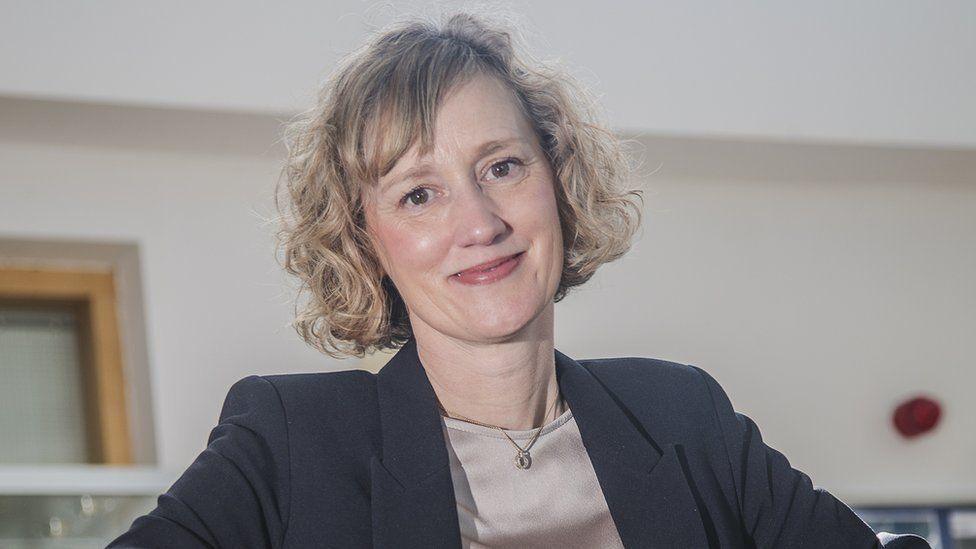Welsh-only names for Senedd seats 'where possible'

From the next election in 2026, Wales will send 96 politicians to the Senedd, 36 more than now
- Published
A Welsh language-only name will be used for new Senedd constituencies for the 2026 election "where possible", say boundary commissioners.
But they also said that decisions on names will "depend heavily" on responses to consultation.
Some UK parliamentary constituencies already have Welsh-only names, such as Ynys Môn (Anglesey) and Caerfyrddin (Carmarthen).
Welsh Language Commissioner Efa Gruffudd Jones and Cymdeithas yr Iaith (the Welsh Language Society) are in favour of a monolingual Welsh name.
Huge seat part of plans for more Senedd politicians
- Published3 September 2024
Map of Welsh MPs seats redrawn as number cut to 32
- Published28 June 2023
Plans for more Senedd politicians get go-ahead
- Published8 May 2024
The Senedd Cymru (Members and Elections) Act 2024, external, which became law in June, says that "each constituency in Wales must have a single monolingual name, unless the commission consider doing so would be unacceptable".
In that case, the law says different names would have to be put forward in both Welsh and English.
Earlier this year, the Senedd's reform bill committee expressed the view "that there should be a presumption in favour of a monolingual name unless there is a specific reason why bilingual names are appropriate".
It also said that "if a constituency is to be given a monolingual name, that name may only be in the Welsh language".

The initial proposals will be revised again in December, and will be finalised next March
Ms Gruffudd Jones told the committee that “a robust policy in favour of monolingual names - which are Welsh names - would be a means of avoiding lengthy discussions about names and a means of promoting and popularising the use of Welsh-only names, as has recently become a popular practice among our national parks.
"Adopting a Welsh-only name would be a powerful indicator of the status of the Welsh language in Wales”.
Two of Wales' national parks, Eryri and Bannau Brycheiniog, are now known officially in Welsh only, although unofficially known as Snowdonia and Brecon Beacons respectively.
Cymdeithas yr Iaith outlined a similar position to the committee, “in keeping with our belief in Welsh as the language proper of Wales, we support the need to give constituencies monolingual Welsh names and want this to be the default approach when naming constituencies, with Welsh names always regarded as the norm”.

"A Welsh-only name would be a powerful indicator of the status of the Welsh language in Wales" says Welsh language commissioner Efa Gruffudd Jones
A spokesperson for the Democracy and Boundary Commission Cymru told BBC Wales that "where possible we will use a monolingual name, but if the commission feels that a Welsh and English name is needed there will be a translation.
"We will use names that are natural for an area (eg Clwyd) if possible, and combine the names of the Westminster constituencies otherwise (eg Dwyfor Meirionnydd, Maldwyn, Glyndŵr)".
From the next election in 2026, Wales will send 96 politicians to the Senedd - 36 more than now - with a new voting system.
There will be 16 constituencies, with six Members of the Senedd (MSs) each.
Boundary commissioners have published proposals for how the seats could work - with the largest seat as big as 1,927 sq miles (4,992 sq km).
Created by pairing up Wales' 32 Westminster seats into 16 constituencies, the new boundaries cross many of the the country's existing administrative borders.